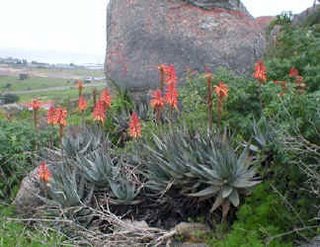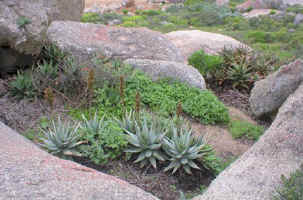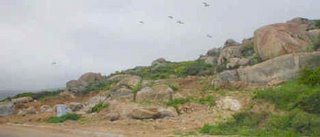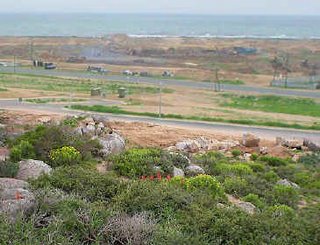| Visiting Aloe framesii in bloom each winter and Aloe mitriformis each summer, was on our agenda every year for at least ten years. Aloe framesii blooms the same time as an assortment of winter flowering plants on a small hill in StHelena Bay. |
The outings to this quiet bay were always refreshing, but now there is a large wound in "our" hill! That is only the start, the whole hill has been cut up and sold for luxury holiday homes. The sea shore has been bull dozed together with many plants - mesembs, stapeliads, caudiciform plants, euphorbias and more. I do not expect propress to come to halt or something like that, but could Nature Conservation or some other organization not contact plant lovers to remove those plants first ? They fine people for removing plants, but bulldozing? Having said that, I am not going to shout around. My motto is if you do not like it, do something about it, or keep quiet. To tell the truth, I do not have the motivation to organize something so that plants could be saved in future. The people of this country seems to have so many problems, nobody wants more on their shoulders. There may be an energetic nature lover reading this blog who is willing to take on the challenge.
Looking down on progress. Many jobs are created and a lot of people need that badly. If I think of children and families having a better life then it eases the loss.

Aloe framesii in bloom. It is a lovely blue aloe. In the summer when all is dry it seems to merge into the blue granite rocks. In winter it needs to be seen by the pollinators and the flowers show off well.

Aloe framesii center front shared this hill with Aloe mitriformis to the back left and right. Aloe mitriformis blooms early summer and Aloe framesii blooms in winter which enabled the two species to grow side by side without hybridizing.




No comments:
Post a Comment